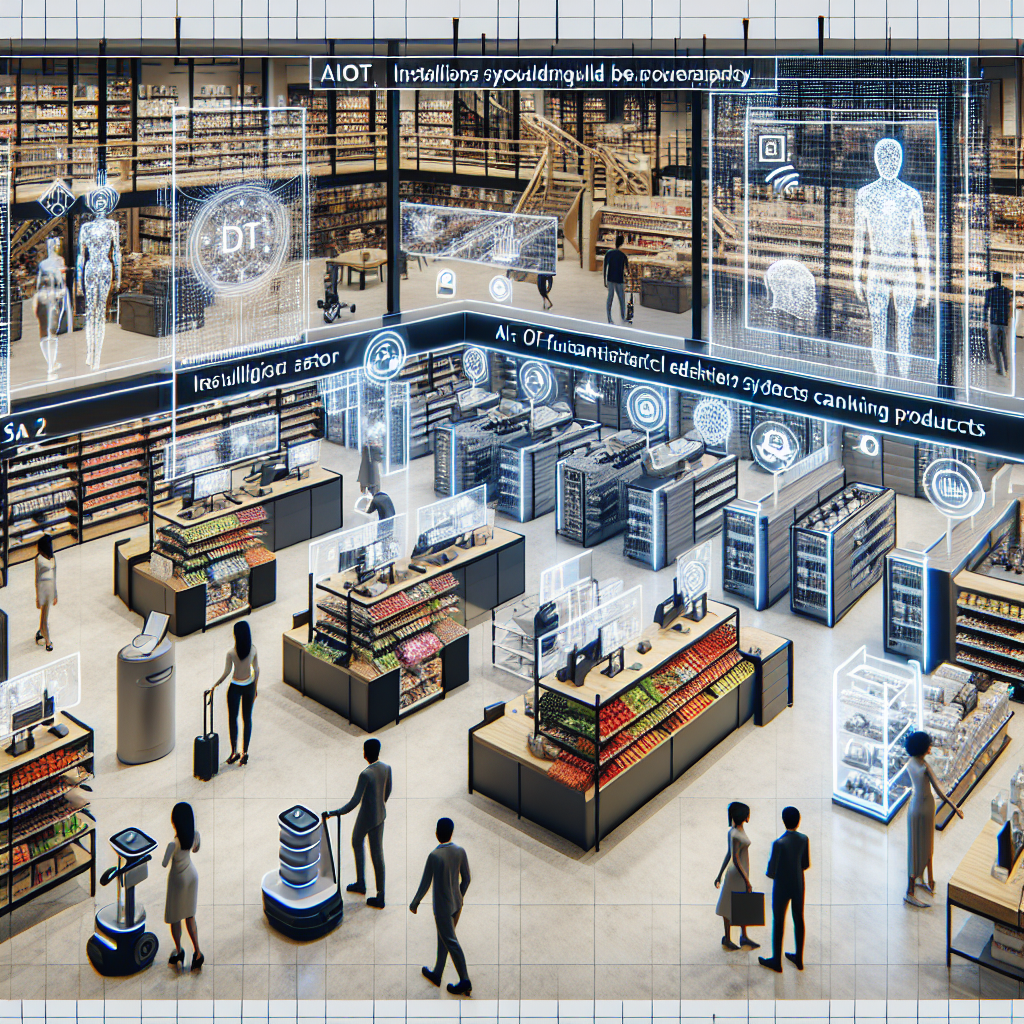The Role of AI-driven Solutions in Smart Retail
In today’s fast-paced and highly competitive retail industry, staying ahead of the curve is essential for success. One way that retailers are achieving this is by leveraging artificial intelligence (AI) technology to drive innovation and enhance the customer experience. AI-driven solutions are revolutionizing the way retailers operate, from inventory management to personalized marketing campaigns. In this article, we will explore the role of AI-driven solutions in smart retail and how they are shaping the future of the industry.
AI-powered Inventory Management
One of the most significant benefits of AI in retail is its ability to optimize inventory management. By analyzing historical sales data, current trends, and other relevant factors, AI algorithms can predict demand accurately and ensure that stores have the right products in stock at all times. This helps retailers reduce stockouts, minimize overstocking, and improve overall efficiency.
AI can also help retailers with demand forecasting, allowing them to anticipate changes in consumer behavior and adjust their inventory levels accordingly. This not only helps improve customer satisfaction by ensuring that products are always available when needed but also reduces costs by minimizing excess inventory.
AI-driven Personalization
Another key area where AI is making a significant impact in retail is in personalized marketing and customer experiences. AI algorithms can analyze vast amounts of customer data, such as purchase history, browsing behavior, and demographic information, to create highly targeted and personalized marketing campaigns.
By leveraging AI-powered recommendation engines, retailers can suggest products to customers based on their preferences, previous purchases, and browsing history. This not only helps drive sales by offering relevant products to customers but also enhances the overall shopping experience by making it more personalized and engaging.
AI can also be used to personalize the in-store experience through interactive displays, virtual assistants, and personalized offers. By leveraging facial recognition technology and customer data, retailers can create tailored experiences for each customer, making them feel valued and appreciated.
AI-powered Customer Service
Customer service is another area where AI is transforming the retail industry. Chatbots and virtual assistants powered by AI algorithms are becoming increasingly popular tools for providing real-time customer support and assistance. These AI-powered solutions can handle a wide range of customer inquiries, from product recommendations to order tracking, and provide fast and efficient responses 24/7.
By automating routine customer service tasks, retailers can free up their staff to focus on more complex and high-value interactions with customers. This not only improves the overall customer experience but also helps reduce costs and increase operational efficiency.
AI-driven Fraud Detection
Fraud detection is a significant concern for retailers, especially in the era of online shopping. AI algorithms can analyze vast amounts of transaction data in real-time to identify suspicious patterns and flag potentially fraudulent transactions. By leveraging AI-powered fraud detection solutions, retailers can reduce the risk of fraud and protect their customers’ sensitive information.
AI-driven Analytics
In addition to inventory management, personalized marketing, customer service, and fraud detection, AI is also revolutionizing retail analytics. By analyzing vast amounts of data, AI algorithms can provide valuable insights into customer behavior, market trends, and operational efficiency. These insights can help retailers make informed decisions, optimize their operations, and drive growth.
FAQs
1. How does AI improve inventory management in retail?
AI improves inventory management in retail by analyzing historical sales data, current trends, and other relevant factors to predict demand accurately and ensure that stores have the right products in stock at all times. This helps reduce stockouts, minimize overstocking, and improve overall efficiency.
2. How does AI personalize marketing campaigns in retail?
AI personalizes marketing campaigns in retail by analyzing customer data, such as purchase history, browsing behavior, and demographic information, to create highly targeted and personalized campaigns. By leveraging recommendation engines, retailers can suggest products to customers based on their preferences, previous purchases, and browsing history.
3. How does AI improve customer service in retail?
AI improves customer service in retail by providing real-time customer support and assistance through chatbots and virtual assistants powered by AI algorithms. These AI-powered solutions can handle a wide range of customer inquiries, from product recommendations to order tracking, and provide fast and efficient responses 24/7.
4. How does AI help retailers detect fraud?
AI helps retailers detect fraud by analyzing transaction data in real-time to identify suspicious patterns and flag potentially fraudulent transactions. By leveraging AI-powered fraud detection solutions, retailers can reduce the risk of fraud and protect their customers’ sensitive information.
5. How does AI-driven analytics benefit retail?
AI-driven analytics benefit retail by providing valuable insights into customer behavior, market trends, and operational efficiency. By analyzing vast amounts of data, AI algorithms can help retailers make informed decisions, optimize their operations, and drive growth.
In conclusion, AI-driven solutions are playing a crucial role in shaping the future of smart retail. From inventory management to personalized marketing campaigns, customer service, fraud detection, and analytics, AI is revolutionizing the way retailers operate and interact with customers. By leveraging AI technology, retailers can improve efficiency, enhance the customer experience, and stay ahead of the competition in today’s rapidly evolving retail landscape.

